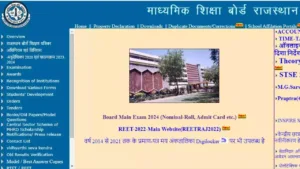Insurance misselling can be a frustrating experience, leaving policyholders feeling misled and uncertain about their coverage. Understanding what constitutes misselling and knowing your rights as a consumer is crucial in safeguarding yourself from such practices.
What is Insurance Misselling?
Insurance misselling occurs when an insurance company sells a product while withholding essential information or misleading customers. This unethical practice can result in legal repercussions for the seller and may leave policyholders with inadequate coverage or denied claims.
Tips to Prevent Misselling
- Interrogation and Clarification: When purchasing insurance, it’s essential to ask questions and seek clarification on policy details, including inclusions, exclusions, and additional coverage options. Maintaining an active dialogue with the insurer can help prevent misunderstandings.
- Avoid Impulsive: Rushing into insurance decisions can lead to regrettable outcomes. Take your time to evaluate policy terms and ensure they align with your needs and financial goals.
- Document Review: Carefully examine policy documents to understand emergency procedures and claim documentation requirements. Being familiar with these details can expedite the claims process during critical moments.
- Research: Before committing to a policy, research insurance companies to verify their credibility and the legitimacy of their offerings. Be wary of promises of unrealistic returns and thoroughly investigate product benefits and alternatives.
- Online Purchases: Directly purchasing insurance from reputable online platforms or insurers can increase transparency and eliminate intermediary bias. Ensure the security of your payment methods and verify beneficiaries before proceeding with payments.
What to Do if You’re a Victim of Misselling
If you suspect that you’ve been missold an insurance policy, you have options for recourse. Within a specific period, you can cancel the policy or file a complaint with the Insurance Regulatory and Development Authority of India (IRDAI), the governing body for insurance policies.
- Collect Evidence: Gather all relevant communication, including emails and messages, to substantiate your claim of misselling. Report the incident to the insurance company and escalate the complaint if necessary to regulatory bodies like the IRDAI or seek redressal through Ombudsman services.
- Utilize Free Look: Take advantage of the free look period offered by insurance policies, typically within 15 days of purchase, to review the terms and benefits thoroughly. If discrepancies are found, invoke the Free Look Cancellation (FLC) provision and seek resolution through the insurer’s Grievance Redressal Cell.
Conclusion
Contempt regulatory measures and efforts to enhance consumer protection, insurance misselling remains a concern. By staying informed, exercising diligence, and understanding your rights, you can mitigate the risks of falling victim to unethical sales practices in the insurance industry.














